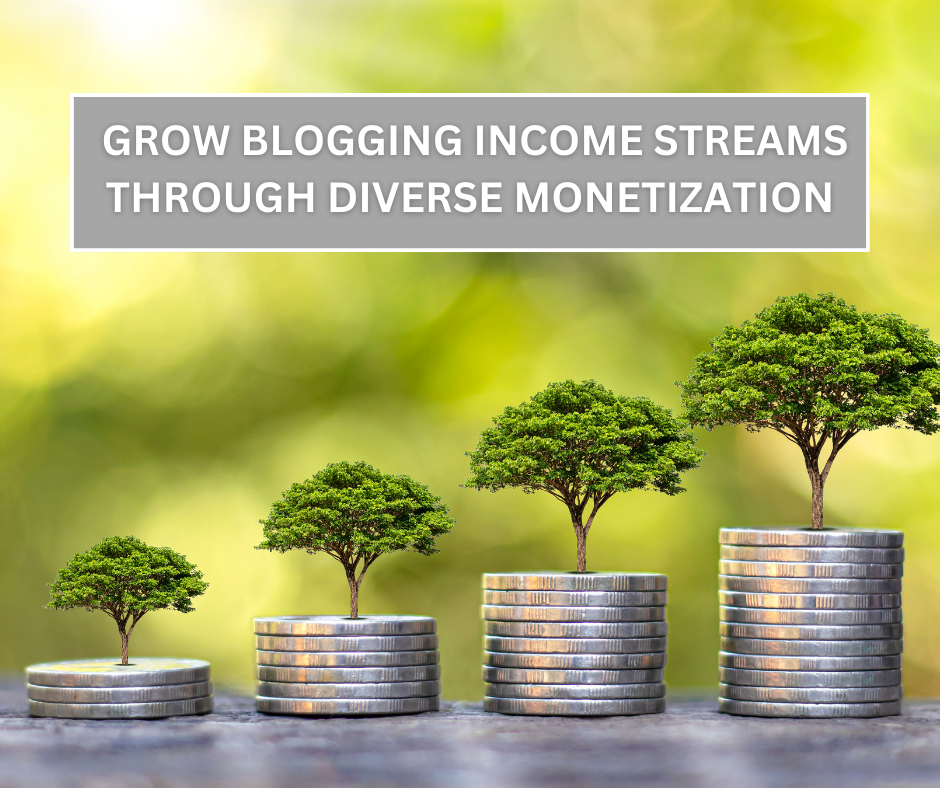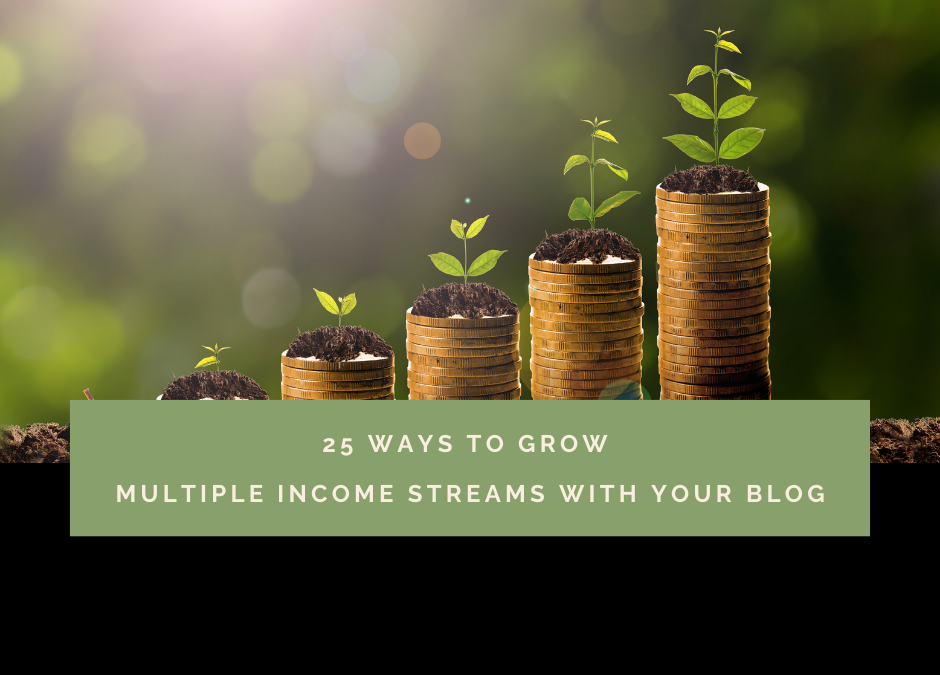
by Cori-Leigh | Blogging, Writing |
Are you struggling with your writing? Have you ever found it difficult to write, publish, and post consistently? Those times when the words and ideas just don’t flow? For a couple of years, it was tough for me to write consistently while helping my mom and caring for my dad, who was living with cancer and dementia.
My dad passed away in November of 2022. My writing fresh content was a challenge. In the year that followed, I still struggled to concentrate and write consistently.
From developing ideas to writing and publishing posts to the flow just wasn’t there. I often stared at a blank screen and wondered where my creative spark had gone. But over time, with patience and persistence, things began to shift.
Maybe you’ve been there too. If so, you’re not alone.
Writing slumps happen to all of us, often during the times we most wish they wouldn’t. Life gets busy. Responsibilities pile up. Grief, exhaustion, or a lack of motivation can creep in quietly. Before you know it, writing feels like an uphill battle.
But here’s the good news: your creativity hasn’t disappeared. It’s simply resting. And like anything that needs restoration, it can be awakened again.
Understand Why Writing Feels Difficult
There are many reasons why writing can feel hard, even when we want to do it. Identifying the root of the struggle is often the first step toward getting unstuck.
Perfectionism convinces us that everything we write and create has to be perfect. It happens before we start writing. But writing isn’t about getting it perfect on the first try. It’s about getting it written, published and out there. First drafts are meant to be rough. You can always polish later, but you can’t revise a blank page. Give yourself permission to write badly. That’s where the magic starts.
Exhaustion
Physical and emotional fatigue can drain your creativity. I experienced this deeply while caring for my father. Even after his passing, I carried the emotional weight, and my energy to create just wasn’t there.
Grief and exhaustion don’t follow a timeline. If you’re navigating loss or chronic stress, your energy and focus may be limited. That’s okay. Healing takes time, and restoration often begins with rest.
Over-commitment
When your plate is too full, writing naturally takes a backseat. I had to step back and re-evaluate my commitments before I could find space to write again.
If your days are packed with to-do lists and responsibilities, try lightening your load. Simplifying your schedule, even in small ways, can help you make time for writing again.
We’ve all been there! Those times when we stare at a blank page, waiting for the words to come. It’s easy to feel stuck, but the truth is, your creative flow can be reignited.
A simple shift in perspective can help you get back to your writing. Small practical steps that lead to bigger changes over time.
Here are several ways I was able to get back consistently writing and publishing content again;
Reading can gently stir your creativity. Whether it’s blogs, books, poetry, or articles, immersing yourself in the written word can remind you why you fell in love with writing in the first place.
Sometimes, one sentence or a unique perspective is enough to reignite your own voice.
Set a timer for ten minutes and write whatever comes to mind with no editing, no backspacing, no worrying about structure or grammar. Let it be messy. Let it be real.
This kind of low-pressure writing helped me reconnect to my voice. I would write journal entries, post drafts, or even one sentence at a time. Over time, these small steps led to big breakthroughs.
Go back through old journals, unpublished drafts, or previous blog posts. You might rediscover ideas worth expanding or remember how far you’ve come.
Sometimes your past words hold keys to future ones.
A simple change of scenery can work wonders. Try writing in a different room, at a cozy café, or even outside in nature. Writing at a different time of day can also help unlock a fresh mindset.
What worked before may not work now and that’s okay. Give yourself permission to try something new.
It’s okay to step back for a little while. In fact, sometimes it’s necessary. When your heart or mind feels heavy, forcing creativity only makes the struggle worse.
Allow yourself to take a break without guilt or self-judgment. Rest is not weakness. It’s part of the creative rhythm.
I wrote about my own season of stepping away to heal and grieve. Eventually the spark to returned. You can read that story here.
Ask yourself: Why did I start writing?
What message, story, or encouragement do you feel called to share?
Reconnecting with your “why” can help rekindle your passion to write and give you a reasons to begin again.
Your words have value. Someone needs to hear what only you can say.
Try writing at different times or in different places than you’re used to. Your life may have changed—and your writing routine might need to shift too.
I had to adjust my own writing routine after everything changed. What worked before no longer worked for me after my dad passed away. But after making changes, I slowly found my groove again.
Start small and build from there.
Supportive writing friends can help lift you up when you’re feeling stuck. I’m incredibly thankful for my tribe of blogging friends who checked in, encouraged me, and reminded me of the value in my words.
One person I’m especially grateful for is Ryan Biddulph from Blogging from Paradise. During my time away, Ryan generously contributed multiple guest posts.
You can view Ryan’s contributing author page and guest posts here. You can also find Ryan at his helpful and supportive Facebook group he recently started for bloggers – How to Blog Successfully.
Rather than expecting yourself to write an entire post or chapter in one sitting, start small. Write 100–300 words. Jot down a few bullet points. Open a document and brainstorm for five minutes.
All progress counts.
Celebrate those small wins. They build momentum and confidence. Consistency in small doses often leads to long-term breakthroughs.
And if you’re having an off day, that’s okay.
Your writing doesn’t have to be flawless. It just has to be written.
If you’re in a writing slump, know this: you’re not alone. Every writer faces seasons like this. But creativity is never gone forever.
So take a deep breath, meet yourself with compassion, and start where you are. Your voice still matters. Your words are still inside you.
What’s one small step you can take today to reignite your writing flow?

by Cori-Leigh | Blogging, Writing |
For many aspiring writers, the idea of publishing a book can feel overwhelming. The good news is, you don’t have to start with a full-length book to become a published writer.
Blogging and online platforms provide an excellent starting point, allowing you to share your work, build an audience, and gain confidence in your writing abilities.
In this post, we’ll explore why starting with a blog or online platform is a smart choice for writers and how to get started.
Why Start with a Blog or Online Platform?
Blogging and online platforms offer writers a way to practice their craft.
Unlike traditional publishing, where gatekeepers like editors and agents decide what gets published, a blog or platform gives you complete control over your content.
Here are a few reasons why this is a great first step:
Gain Writing Experience – Writing regularly for an audience helps you improve your skills faster than writing in isolation.
Build Confidence – The more you share your work, the easier it becomes to overcome self-doubt and fear.
Establish a Readership – Publishing online allows you to connect with people who appreciate your work and provide feedback.
Experiment with Different Writing Styles – Whether you want to write essays, tutorials, short stories, or opinion pieces, a blog lets you explore different formats.
Opens Up Opportunities Earnings– Blogs and platforms can eventually become opportunities to grow multiple income streams.
Choosing the Right Platform for Your Writing
The best platform for you depends on your goals, audience, and preferred writing style.
Here are some great options to consider:
Starting Your Own Blog
Having your own website and blog gives you full control over your content and brand. It allows you to build a long-term presence online and own your audience. Some popular website-building platforms include:
WordPress.org – Best for serious writers who want full control over their site.
Wix or Squarespace – User-friendly options for those who prefer drag-and-drop editors.
Ghost – A minimalist blogging platform for writers who want a distraction-free experience.
Starting a blog requires a small investment in a domain name and hosting, but it’s a great way to establish your online presence.
Publishing on Medium
Medium is a popular platform for writers who want to publish essays, thought pieces, or informative content without managing a website.
Medium is also a great platform for writers in addition to having your own blog. I recommend both – other platforms and owning your own blog.
Benefits of Medium include:
*Meet and grow relationships other writers and bloggers.
*Helps to expand your reach to a larger audience of readers.
*Medium is an easy-to-use writing platform.
*Potential to earn through the Medium Partner Program.
Medium is a great option if you want to focus on writing without the technical side of managing a blog.
I’m personally a fan of owning your own website/blog. A place where all you do online lives.
If that isn’t for you then a writer platform like Medium or Substack could be a great start!
Writing on Substack
Substack is designed for writers who enjoy writing newsletters and building a subscriber-based audience. It’s perfect for those who want to share personal insights, serialized content, or niche writing topics. Benefits of Substack include:
- Ability to build an email list
- Monetization through paid subscriptions
- Simple publishing tools
If you enjoy direct communication with readers, Substack is a fantastic choice.
How to Start Writing and Publishing Online
Once you’ve chosen a platform, it’s time to start writing and sharing your work.
Here are some key steps:
Decide on Your Writing Niche – While you don’t need to stick to one topic, having a general theme helps attract the right audience.
Create a Simple Publishing Schedule – Consistency is more important than frequency. Aim to publish once a week or every other week to build momentum.
Write with Your Reader in Mind – Create a blog your reader will love! Think about how your writing can help, inspire, or entertain your audience.
Engage with Your Readers – Reply to comments, ask for feedback, and encourage discussions to build a community.
Share Your Work – Use social media, email newsletters, guest posting, community, and networking to expand your reach.
Overcoming the Fear of Publishing Online
Many writers hesitate to publish their work online due to fear of criticism or feeling like they’re not “good enough.”
Here’s how to overcome this:
Remember that all writers start somewhere – Your writing will improve over time with practice.
Embrace imperfection – Perfectionism can keep you from ever hitting “publish.” Aim for progress instead.
Take small steps – Start by sharing with a small audience and gradually expand.
Final Thoughts
Starting a blog or writing on an online platform is one of the best ways to gain confidence as a writer. It allows you to share your voice, connect with readers, and improve your skills over time.
Whether you choose Medium, Substack, or your own blog, the key is to start. The more you write and publish, the easier it becomes.
Start sharing your writing! Your words matter!

by Cori-Leigh | Blogging, Writing |
For many beginner and seasoned writers, the thought of publishing their work online can feel daunting. Self-doubt, fear of criticism, and uncertainty about where to start can hold them back. The truth is, every successful writer once started as a beginner.
The key to building confidence is taking consistent steps toward writing,
publishing, and sharing your work.
If you’ve ever wanted to write but felt unsure about putting yourself out there, this guide will help you move past fear and into action. Or maybe your a seasoned writer who struggles with finding the confidence to publish your work online.
Whether you plan to publish on a website, Substack, Medium, or even self-publish on Amazon, here’s how you can build the confidence to write and share your work online.
Overcoming the Fear of Writing and Publishing
Fear is one of the biggest obstacles that prevent new writers from publishing their work. Thoughts like “What if no one reads it?” or “What if people criticize my writing?” are common.
Here’s how to begin overcoming the fear of publishing and sharing your work:
- Acknowledge the Fear but Write Anyway: Fear is natural. Accept that it exists, but don’t let it stop you. Writing is a skill that improves with practice, so the more you write and publish, the more confident you’ll become.
- Start Small: Instead of aiming for a full book right away, begin with shorter pieces—blog posts, articles, or even social media captions. This helps you ease into the process without overwhelming yourself.
- Embrace Imperfection: No writer starts out perfect. Instead of aiming for perfection, aim for progress. Publishing an imperfect piece is better than never publishing at all.
Build Confidence Through Consistent Writing
Confidence grows with consistency. The more you write, the more you refine your voice and develop your skills.
Here’s how to build a writing habit:
- Set a Writing Routine: Whether it’s 15 minutes a day or three times a week, consistency matters more than creating a writing routine you can’t keep up with. It is far more important to just show up and practice writing as much as you can. By showing up to write regularly you’ll develop a strong writing routine.
- Freewrite Without Judgment: Writing without editing as you go can help silence your inner critic. Just get the words down first. Refuse to check for writing errors or edit any of what is written. When you critique everything and edit as you write – the joy of writing vanishes. When this happens you become restricted and frustrated which blocks the flow.
- Join Writing Challenges: Participating in challenges like writing contests, NaNoWriMo (National Novel Writing Month) or a 30-day blogging challenge can push you to write regularly.
Start with a Blog or Online Platform
Publishing on your own blog or a content platform is a great way
to start sharing your work without pressure.
Here are few options to consider:
- Medium: Writing on Medium is great for both beginners and seasoned writers who want to write essays, stories, or thought pieces without starting their own website.
- Substack: If you enjoy writing newsletters and building a community, Substack allows you to publish and even monetize your content.
- Your Own Website: Owning your platform gives you control over your content and brand. You can start with WordPress, Wix, or Squarespace.
Develop Your Unique Writing Voice
Many beginners worry that their writing isn’t good enough. The truth is,
your writing style is what makes you unique.
To develop your voice:
- Write Like You Speak: Avoid trying to sound overly academic or formal. Writing in a conversational tone makes your content more engaging.
- Read Widely: Reading different authors helps you discover what styles resonate with you.
- Experiment: Try different types of writing—personal essays, opinion pieces, tutorials—to find what you enjoy most.
Learn Basic Editing Skills
One reason new writers hesitate to publish is the fear of mistakes.
While professional editing is ideal, you can improve your writing with basic self-editing:
- Use Simple Language: Avoid jargon and overly complex words. Clear writing is better than fancy writing.
- Read Your Work Aloud: This helps you catch awkward phrasing and errors.
- Use Editing Tools: Grammarly, Hemingway Editor, and ProWritingAid can help you refine your writing.
Publish and Share Your Work
Once you’ve written and edited your content, the next step is publishing.
Here’s how to do it confidently:
- Start with Small Audiences: Share with close friends or a small writing group first.
- Use Social Media: Platforms like Twitter (X) , LinkedIn, Facebook and Instagram can help you reach new readers.
- Engage with Readers: Reply to comments, answer questions, and appreciate feedback. It helps you build confidence and community.
Self-Publishing on Amazon
If you dream of publishing a book, self-publishing on Amazon is a great option.
Here’s how to start:
Write and Format Your Manuscript
Use tools like Scrivener or Microsoft Word to format properly.
Design a Professional Cover
A good cover makes a big difference. Use Canva or hire a designer.
Upload to Amazon Kindle Direct Publishing (KDP)
Writing and publishing to sell your books/eBooks online worldwide through KDP makes it easy enter the self publishing market.
Promote Your Book
Use social media, email lists, and book launch teams and others strategies to get readers.
Keep Growing and Improving
Confidence comes with experience. The more you write and publish, the easier it becomes.
To keep writing and growing:
- Join Writing Communities: Online groups like Writers’ Cafe, Facebook writing groups, or Substack communities can offer support.
- Take Courses: Platforms like Udemy, Skillshare, and Coursera have great writing courses.
- Celebrate Small Wins: Every published post, every new reader, and every positive comment is a step toward greater confidence.
Final Thoughts
Gaining confidence as a writer doesn’t happen overnight, but taking small, consistent steps will help you overcome fear and self-doubt.
By writing regularly, embracing imperfection, and gradually sharing your work, you’ll find your voice and grow into a confident writer.
Whether you publish on a blog, Medium, Substack, or Amazon, the key is to start—and keep going. Your words matter, and the world needs your voice – keep writing!

by Cori-Leigh | Blogging |
Blogging has become incredibly competitive since I began in 2012. Yet, opportunities for bloggers and digital creators continue to expand. The key to success lies in adapting to the fast-paced shifts in the digital world and implementing smart blogging practices.
We now live in an era dominated by short-form video content and AI-generated articles flooding the internet. It’s easy to assume blogging has lost its relevance. Many bloggers who struggled to adapt to these changes eventually gave up. However, those bloggers who remained flexible and embraced these changes continue to thrive.
With the rapid evolution of digital content, succeeding in 2025
requires more than just writing blog posts.
Success now hinges on understanding digital trends, meeting your audience’s ever-changing needs, and embracing new content formats. Bloggers who stay ahead of the curve and consistently adapt will continue to build thriving profitable blogs.
In this post, we’ll explore the current state of blogging and discuss key strategies to help you stand out and succeed in an ever-changing digital world. Whether you’re a seasoned blogger or just starting, these insights will help you navigate the future of blogging with confidence.
The digital space has expanded, with video content, social media platforms, and AI-generated material becoming dominant forces.
Despite these shifts, blogging remains a valuable and relevant medium for several reasons:
Search Engine Optimization (SEO) is Still Key

Google and other search engines continue to prioritize high-quality written content when ranking websites.
Well-researched, long-form blog posts optimized for SEO still play a crucial role in driving organic traffic.
While AI-generated content is increasing, authentic, expert-driven content holds more authority and credibility in search results. Bloggers who focus on strong SEO practices—including keyword research, internal linking, and valuable content—will continue to see success.
Create Value Driven Blog Content

People enjoy in – depth, high quality valuable information. While short-form content thrives on some platforms like Instagram or Facebook post descriptions, it often lacks the depth that blog readers seek. Blogs offer detailed, evergreen resources that audiences can return to over time.
By focusing on writing valuable blog posts you increase your chances of ranking well and keeping readers coming back for more. Whether it’s a how-to guide, industry insights, or personal experiences, blogs remain the go-to format for those who want more than just a quick snippet of information.
Blogging isn’t just about text—it’s about multi-format content. Consider enhancing your posts by incorporating:
- Short videos (embed from YouTube, TikTok, or Instagram Reels).
- Audio versions of posts (podcasts or narrated articles).
- Infographics and visuals to illustrate points.
- Interactive elements like quizzes and polls.
- Web Stories or bite-sized content designed for mobile users.
Creating Content That Stands Out
SEO remains a powerful tool for driving traffic in 2025, but search engines have evolved to prioritize user experience, intent, and authority over rigid keyword strategies. This means bloggers must go beyond basic SEO tactics and focus on delivering genuine value to their audience.
Here are a few ways you can leverage your content to stand out;
Use long-tail keywords naturally – Instead of keyword stuffing, integrate them seamlessly within engaging, well-structured content. Aim to answer specific user queries in a conversational and informative way.
Improve readability – Today’s readers scan content quickly, so use short paragraphs, bullet points, subheadings, and white space to enhance readability. Formatting matters just as much as the message itself.
Create comprehensive, well-researched content – Short, surface-level articles won’t perform as well as in-depth, insightful pieces. Strive to provide unique insights, data, and actionable takeaways that keep readers engaged.
Optimize multimedia elements – High-quality images, embedded videos, infographics, and interactive elements enhance user experience. Be sure to optimize alt text and file sizes for faster loading speeds.
Ensure fast loading times and mobile responsiveness – A slow or clunky website can deter visitors and impact rankings. Use tools like Google PageSpeed Insights to optimize performance.
Regularly update old content – Evergreen posts can lose relevance over time. Conduct content audits to refresh outdated information, add new insights, and improve structure for better engagement.
Expand Your Reach

Your blog content helps to drive traffic, build trust, and establish expertise in any niche. Unlike social media posts, your blog content can be repurposed into newsletters, social media updates, and video scripts.
Re-purpose Your Content
Maximize your reach by re-purposing and sharing it across various platforms.
- Turn blog posts into social media threads or carousel posts.
- Republish articles on platforms like Medium, Substack or LinkedIn.
- Convert written content into a video script for YouTube.
- Create downloadable PDFs or infographics for added value.
Monetizing to Grow Income Streams with Your Blog

With strategic planning, bloggers can turn their platforms into earning sustainable multiple income steams, even as digital trends evolve.
Blogging remains a lucrative opportunity with diverse monetization options such as;
- Ads (display ads through networks like Google AdSense or Mediavine)
- Affiliate marketing (earning commissions by recommending products and services)
- Sponsored content (collaborations with brands for paid blog posts)
- Digital products (selling eBooks, courses, printables, or membership content)
- Consulting and services (using a blog as a portfolio to attract clients
- Memberships & subscriptions – Offer exclusive content to paying subscribers.
- Sponsored content – Partner with brands for paid promotions.
- Freelance services – Use your blog to showcase expertise and land clients.
- Coaching or consulting – Provide one-on-one guidance based on your niche.
- E-commerce integration – Sell physical or digital products directly from your blog.
Build an Engaged Community

A successful blog isn’t just about traffic—it’s about loyal readers and community. Ways to build a thriving community include:
- Encouraging comments and discussions on your posts.
- Offering a free email newsletter to keep readers engaged.
- Creating a Facebook group around your niche.
- Being active on social media to interact with your audience.
- Host live Q&A sessions, Podcasts, or webinars to deepen connections.
Stay Consistent and Adapt
The keys to blogging success has always been and still is in 2025 – consistency, authenticity, generosity, community, and adaptability:
- Create a content schedule and stick to it.
- Stay updated on SEO trends and algorithm changes.
- Monitor your analytics and adjust your strategy based on what works.
- Keep learning from successful bloggers and evolving with industry trends.
- Test different content formats to see what resonates best with your audience.
Key Takeaways

SEO is Still a Powerful Traffic Driver
Search engines prioritize high-quality, well-optimized content. Focus on creating in-depth, well-researched blog posts that provide genuine value.
Content Marketing is Essential
Blogging remains a strong foundation for digital marketing, helping to drive traffic, establish authority, and build long-term audience trust.
Adapt to Multi-Format Content
Enhance engagement by incorporating videos, podcasts, infographics, and interactive elements alongside written content. Readers expect a rich and engaging experience.
Re-purpose Your Blog Content
Maximize your reach by turning blog posts into social media threads, LinkedIn articles, YouTube scripts, and email newsletters. This extends the lifespan of your content.
Monetization is Evolving
Grow multiple income streams through ads, affiliate marketing, digital products, consulting, and memberships. Diversifying revenue sources makes your blog more sustainable.
Community Matters More Than Ever
Building an engaged audience is key. Encourage discussions, offer a free newsletter, create a Facebook group, and interact on social media to foster loyalty.
Consistency & Adaptability Lead to Growth
Stick to a content schedule, stay updated on SEO trends, analyze performance metrics, and adjust your strategy based on what works best for your audience.
Blogging in 2025 is Still Alive and Thriving
By focusing on quality content, SEO, community-building, diverse formats, and multiple income streams, you can grow a successful and sustainable blog.
Whether you’re starting fresh or revamping an existing blog, now is a great time to invest in blogging. Stay adaptable, put in the effort, and watch your blog flourish in 2025.
Are you currently blogging or thinking about starting a blog?
Let me know in the comments.

by Cori-Leigh | Blogging |
Are you a blogger who grapples with how to turn your blog into a source of multiple income streams? You are not alone! Many bloggers dream of monetizing their blogs yet don’t know where to start. Starting on your path to earning money as a blogger can be overwhelming.
Remember, you don’t need to implement every idea on this list to be successful. Instead, focus on the strategies that align with your blog’s purpose and your strengths.
Whether you’re passionate about writing eBooks, offering consulting services, or exploring sponsored content, select methods that resonate with you and fit your audience’s needs.
This post explores 25 ways to unlock earning potential with your blog, from affiliate marketing to selling digital products and beyond.
1. Affiliate Marketing
Affiliate marketing involves promoting other companies’ products or services on your blog. When your readers click on these links and make a purchase, you earn a commission.
Start by joining affiliate programs related to your niche, such as Amazon Associates or ShareASale. Promote relevant products, and provide honest reviews to build trust with your audience.
2. Sponsored Content
Sponsored content is when companies pay you to write posts or articles that promote their products or services. Build your blog’s authority by creating high-quality content and growing your audience. Reach out to brands or use platforms to find sponsorships. Ensure sponsored posts are clearly labeled and fit naturally with your blog’s content.
3. Display Advertising
Display ads are visual ads placed on your blog, earning you money based on clicks. Join ad networks like Google AdSense or Media.net to start. Optimize ad placement and monitor performance to maximize revenue. However, be cautious not to overload your site with ads, as this can be distracting for visitors.
4. Selling Digital Products
Selling digital products like eBooks, printables, or online courses can be highly profitable. Identify what would be valuable to your audience, create high-quality products, and use your blog to market them. Consider platforms like Gumroad, Amazon, and Payhip for selling your products. Etsy is great as well for selling your digital downloads.
5. Memberships or Subscriptions
Offer exclusive content or benefits through membership or subscription. Create different membership tiers with varying perks and use platforms like Patreon or MemberPress to manage subscriptions. Promote the value of your exclusive content to encourage sign-ups.
6. Selling Physical Products
If you have an engaged audience, consider selling physical products such as branded merchandise or niche-related items. Develop a product line that resonates with your readers, set up an online store using platforms like Shopify, or Etsy. Expand your reach and market your products through your blog and social media.
7. Consulting and Freelance Work
Leverage your expertise by offering consulting or freelance services. Create a dedicated page on your blog to detail your services and network with other bloggers or brands to find opportunities. Doing this generates additional income and establishes you as an expert in your field.
8. Email Marketing
Email marketing involves building a subscriber list and sending out newsletters or promotional offers. Grow your email list with opt-in forms and lead magnets. Provide valuable email content and monetize with your offers such as sellable and free products.
Examples of what you can include in your emails: are eBooks, courses, printables, or any other products you offer.
9. Online Courses and Workshops
Create and sell online courses or workshops related to your niche. Develop comprehensive and valuable content, and use your blog to promote these offerings. Platforms like Udemy, or Thinkific can help you manage and sell your courses.
10. Hosting Webinars
Webinars are a great way to engage with your audience and generate income. Host live sessions on topics relevant to your niche, and charge a fee for access. Promote your webinars through your blog and social media to attract attendees.
11. Writing and Selling eBooks
Writing eBooks on subjects aligned with your blog’s niche can be a lucrative income stream. Invest in professional design and editing, and sell your eBooks directly through your blog or platforms like Amazon Kindle Direct Publishing.
12. Selling Ad Space Directly
Instead of using ad networks, you can sell ad space directly to companies. This allows you to set your rates and build relationships with advertisers. Ensure that ad placements are relevant to your audience to maintain engagement.
13. Creating and Selling Online Communities
Build a paid online community or forum where members can interact, share ideas, and access exclusive content. Facebook Groups can be used to manage your community.
14. Dropshipping
Start a dropshipping business where you sell products directly from suppliers without holding inventory. Printful and Printify allow you to create your physical products and connect them with your selling platform.
You can connect physical products to Etsy, Amazon, and other platforms You can also use platforms like Shopify or WooCommerce to set up your store and market your products through your blog.
15. Crowdfunding
Use crowdfunding platforms like Kickstarter or Indiegogo to raise funds for a specific project or product. Promote your campaign through your blog to attract backers and generate support.
16. Writing Sponsored Reviews
Write sponsored reviews of products or services related to your niche. Brands will pay you for honest reviews that include a link to their products. Ensure reviews are authentic and useful to your readers.
17. Offering Paid Content
Create premium content that is available only to paying subscribers. This could include in-depth articles, reports, or exclusive interviews. Promote this content through your blog to attract subscribers. You can do this for example on Substack and Medium.
18. Creating and Selling Templates or Tools
Develop and sell digital tools or templates that are useful to your audience, such as design templates, planners, or spreadsheets. Market these products through your blog and offer them at a reasonable price.
19. Selling Stock Photos or Graphics
If you have a talent for photography or graphic design, consider selling stock photos or graphics on platforms like Shutterstock or Etsy. Promote your portfolio through your blog to attract buyers. You can also create digital graphics using Canva and sell what you make.
20. Offering Personal Coaching
Provide one-on-one coaching sessions on topics related to your niche. Use your blog to advertise your coaching services and share testimonials from past clients.
21. Selling Audio or Video Content
Create and sell audio or video content, podcasts, or video tutorials. Use your blog to promote and sell these offerings, and consider using platforms like Patreon to manage subscriptions.
22. Hosting Contests and Giveaways
Offering free giveaways such as eBooks, mini-courses, and printables increases engagement. Promote them on your blog and social media.
23. Creating and Selling Online Membership Courses
Develop online courses with membership access for ongoing education. Use your blog to promote these courses and offer a subscription model for continuous learning.
24. Offering Expert Reviews and Consulting
Offer expert reviews and consulting services on topics within your niche. Leverage your blog to showcase your expertise and attract clients seeking your advice.
25. Selling Digital Subscriptions
Create a subscription model for exclusive digital content, such as monthly reports, premium articles, or special features. Use your blog to market the subscription and provide ongoing value to subscribers.
Final Thoughts:
Monetizing your blog involves exploring various strategies to find what works best for you. Each method requires dedication and patience, but with consistent effort and creativity, you can transform your blog into a thriving source of income.
Focus on creating value for your audience, and don’t be afraid to experiment with different approaches. Your blogging journey is unique, and with the right strategies, you can achieve financial success while doing what you love.











